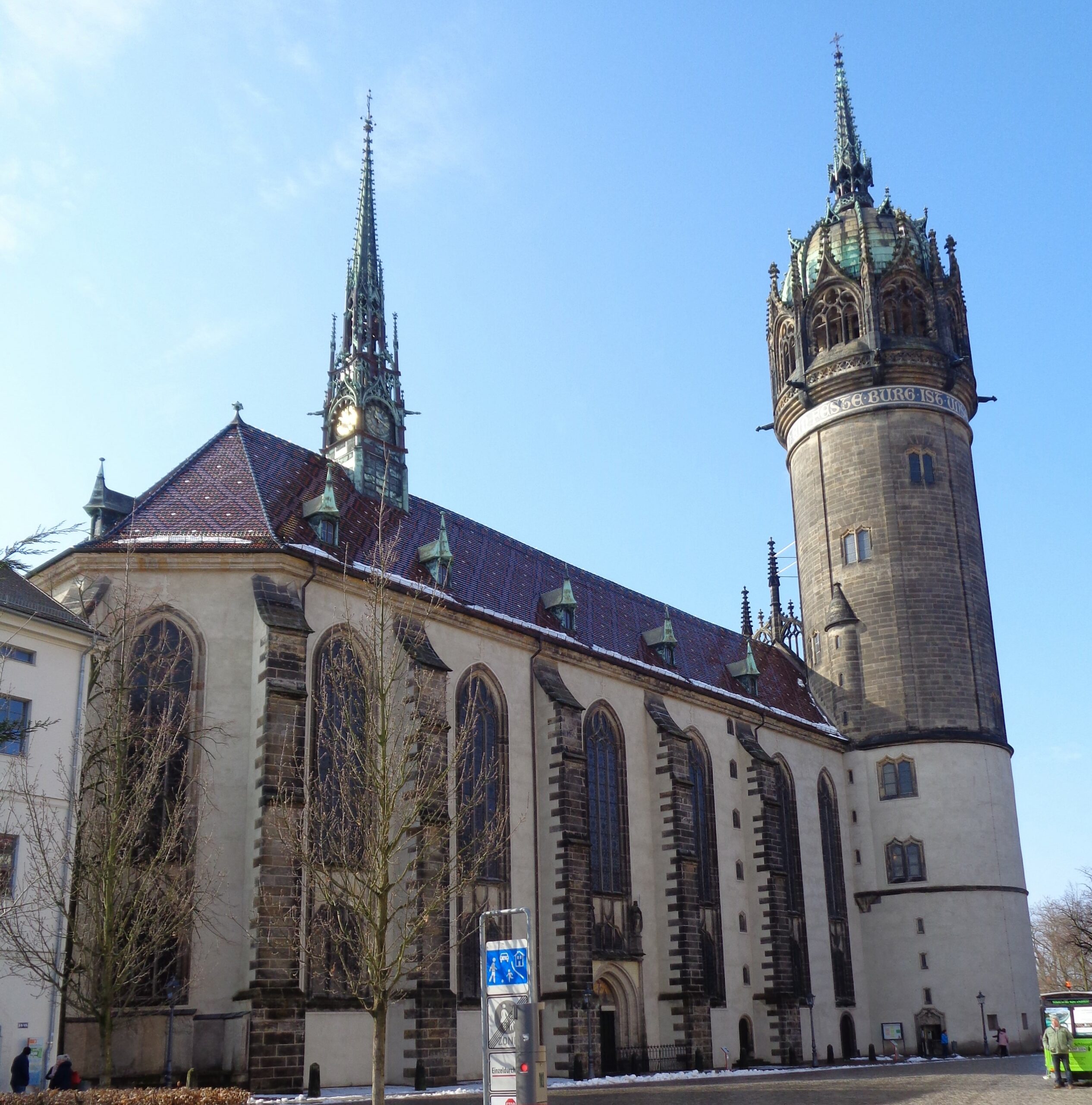Happy Halloween and Happy Reformation Day! Today we mark the anniversary of the many changes in religious thought, belief, and practice brought about by reformers of the church like Martin Luther. Luther challenged the teachings of the medieval church, pushing back against the old image of God as a hostile and impatient judge, ready and eager to toss people into eternal punishment for their sins. Luther taught Bible at the university in Wittenberg, German, exploring for the first time the actual words of the Bible himself. Particularly in the gospels and letters of the apostle Paul, Luther encountered compelling passages telling of God’s grace; God’s loving and generous eagerness to claim and forgive humans, despite our failings.
On this day in 1517, Luther presented a list of topics he would like to debate with the leaders of the church. They raised questions about contrasts he found between the writings in the Bible and the practices and teachings of his day. The hierarchy of the church responded harshly. Luther was tried for heresy (incorrect and illegal teachings) and ordered to take it all back. He refused and became an outlaw and a fugitive. Under the protection of the prince who ruled over the area where Luther lived, he escaped assassination and continued to write and even translated the Bible into the German language for the first time. The newly invented printing press was key to spreading his ideas. Though Luther’s intent was to reform the church, in the end, he was a catalyst in creating many new denominations.
There are many themes that are core to Luther’s thought – one that is at the heart of this week’s gospel reading is freedom. Luther taught that God’s love is not earned, but is a free gift. Followers of Jesus are set free from the notion they need to try and earn God’s forgiveness (with their good deeds) because of the gracious love of God. Followers of Jesus eagerly do things for our neighbors, our communities, and the whole world in response to the goodness and blessings of God. Free from the lies that God demands we earn acceptance, we carry out “good works” to be a help and blessing to the people and situations around us. Free from earning our salvation, we are free to serve our neighbor.
As a church that grew from the ideas of the reformation, the Lutheran church today is committed to ongoing change and reform. This means that both as individuals and a faith community we continue to look at what we do and teach, seeking to find how best to reflect God’s grace and love and the world changes. Ultimately, reform means there is always hope for new beginnings and new life.
Peace,

